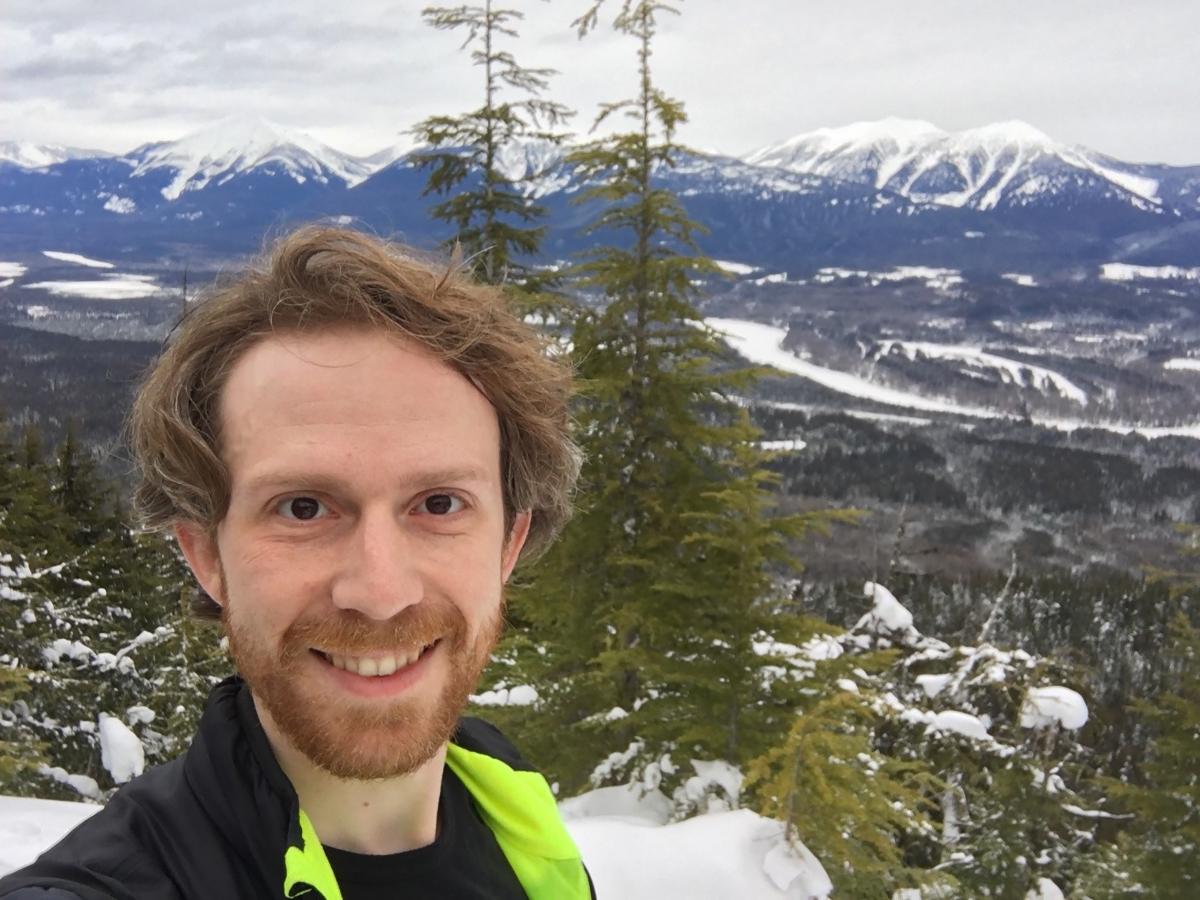Dr Andrew Gray, a Medical Health Officer in Northern Health, attributes his pursuit of the Public Health and Preventive Medicine specialty to a desire for contributing to the well being of people, as well as good timing.

Growing up in Vancouver and finishing his Bachelors’ degree in Mathematics and Computer Science at UBC, Dr Gray began to look at how he could have a more direct impact on helping people. His own doctor, who also had an undergraduate degree in Mathematics, suggested he pursue medicine. “As a kid I enjoyed the abstract clarity of mathematics, but by that point in my life I was looking for something more practical,” said Dr Gray.
Upon entering medicine, he found his fit with public health where population-level statistics and systems thinking aligned well with his mathematics background. “I started looking at policies and social conditions and it seemed clear it would have a bigger impact to change policies and the circumstances that people were living in.” Dr Gray found kindred spirits in the people who worked in public health, who, like him, were interested in social justice and equity.
Dr Gray completed his residency at McGill University, which included an elective in Prince George, BC. At the end of his training, Dr Gray was ready to return to BC when he successfully applied for a position for a medical health officer with Northern Health. “I took a particular interest in harm reduction because it offered a pragmatic and dignified care approach to people most marginalized in our society. It felt right to me,” he said.
Dr Gray’s work touches on a wide range of areas including harm reduction, communicable disease control, environmental health, including air quality and drinking water protection, injury and chronic disease prevention, and advocacy on climate change mitigation. This often means he works with groups outside of the health care system, including local governments, the education sector, police, NGOs and even the private sector.
One example of this type of collaboration is how Northern Health is working with resource development projects, such as oil, gas and mining, to help anticipate and mitigate health, environmental and community impacts. “We are working directly with the resource companies and promoters of these development projects to better influence their plans. As far as I know it’s a fairly unique organized effort to engage with private industry on public health matters.”
While he enjoys the variety of projects he is involved in, overdose emergency has been the largest part of Dr Gray’s work these last few years and his focus when he participated in SSC’s UBC Sauder Leadership Program.
The goal of his project is to eliminate a barrier to care for people with addictions by working to shift ‘zero tolerance’ policies in hospitals to policies that are grounded in patient safety and patient-centred care. The project is currently in its early stages, as Dr Gray notes, “systemic change takes a long-time to happen.”
He credits the program with broadening his skills, particularly in listening and influencing to bring about change. He learned how to structure a pitch and create compelling ways for different audiences to view issues and communicate ideas that resonate. In addition, he learned to facilitate conversations, to be open to hearing other people’s ideas and collectively define a problem in order to find solutions. “It’s not a skill set most physicians get from their training,” he said of the leadership program, adding, “it opened my eyes to the wealth of ideas all around me and gave me a much clearer road map on how to make change.”
Learn more about the Specialist Services Committee’s programs and initiatives by clicking here.



